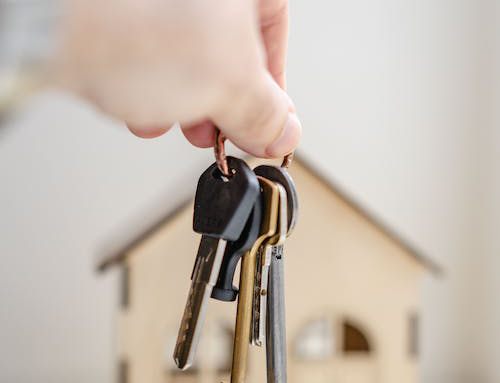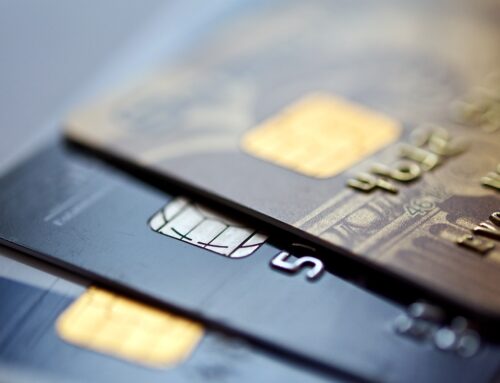How to Build Credit from Scratch
If you’ve never had a credit card or loan before, the idea of building credit can be intimidating. However, it doesn’t have to be! With the right strategies and tips, you can start building your credit score from scratch. Here are some steps for first-time credit users that will help you get started on your journey toward financial stability and better credit.
Know Your Credit Score
Before you can even begin building your credit score, it’s important to know where you stand. You are entitled to one free report per year from each of the three major bureaus (Experian, TransUnion, and Equifax). This report will give you an overview of your current debt obligations and payment history, which is key to understanding how to move forward with establishing good credit. At Masters Credit, we’ll provide you with a free credit consultation.
Secure Small Loans or Credit Cards
Securing a small loan or secured credit card is a great way to establish credit. A secured loan means that you borrow money against an asset such as a car or home. The asset serves as collateral in case you are unable to repay the loan in full. Secured cards also require collateral but usually involve putting down a deposit which acts as the collateral on the card itself. These types of loans or cards are less risky for lenders since they have something tangible they can use if you default on payments.
Here are some steps you can take to secure small loans or credit cards:
- Build your credit: Lenders will often look at your credit score and credit history when deciding whether to approve you for a loan or credit card. If you have a good credit score, you’re more likely to be approved. To build your credit, make sure you pay your bills on time, keep your balances low, and avoid applying for too many loans or credit cards at once.
- Get a co-signer: If you have a co-signer with good credit, they can help you get approved for a loan or credit card. A co-signer will be responsible for repaying the loan if you’re unable to do so.
- Find a secured credit card: Secured credit cards require a security deposit, which is used as collateral in case you’re unable to make your payments. Secured cards are a good option for those with little or no credit history.
- Get a small personal loan: Some banks and credit unions offer small personal loans to their customers. These loans can be used for a variety of purposes, such as paying off debts or making a large purchase.
- Look for small loans from online lenders: Online lenders may offer small loans with lower requirements and quick approval processes, but these loans may also have a higher interest rate, so it’s important to compare the options and find one that fits your needs.
- Look for loans and credit cards tailored for those with a thin credit file: some lenders and companies offer credit cards or loans for people with a limited credit history, look into these options and compare the terms and fees.
- Improve your income or employment status: A steady and consistent income can help to improve the chances of getting approved for a loan or credit card and make lenders feel more secure about lending to you.
Be sure to compare the different options available to you, read the terms and conditions carefully, and understand the fees, interest rates, and other charges associated with the loan or credit card. And remember to keep your balances low, make payments on time, and be mindful of your credit history to continue to build or improve your credit score over time.
Pay Your Bills On Time
Does this seem like a “no-brainer”? The most important factor in building your credit score is making sure all payments are made on time—every month—without fail. Payment history makes up 35 percent of your total FICO score so it’s essential that all bills are paid by their due date each month for optimal success when building your score from scratch. Additionally, it’s important not to max out any lines of credit as this could have a negative impact on your score. Aim for no more than 30 percent utilization on any given line of credit at one time in order to build good habits early on and maximize growth potential in terms of improving your score moving forward.
Here are some tips to help you pay your bills on time:
- Create a budget: A budget will help you keep track of your income and expenses and identify areas where you can cut back. By knowing how much money you have coming in and going out, you’ll be better able to prioritize your bills and make sure they’re paid on time.
- Set up automatic payments: Many creditors offer the option to set up automatic payments. This can be a convenient way to ensure that your bills are paid on time, every time, without you having to worry about it.
- Use calendar reminders: Use a calendar or reminder app to set up reminders for when your bills are due. This way, you’ll have time to gather the funds you need to pay your bills before they’re due.
- Consolidate your bills: If you have multiple bills to pay each month, it can be difficult to keep track of them all. Consider consolidating your bills into one payment, which can make it easier to manage.
- Communicate with your creditors: If you’re having trouble paying your bills on time, don’t be afraid to reach out to your creditors and let them know. They may be able to work with you to come up with a payment plan that suits your needs.
- Prioritize your bills: Pay the bills that are most important first, such as those for housing, utilities, and transportation, to avoid any late fees and penalties
- Avoid unnecessary expenses: minimize unnecessary expenses and put that money towards bills and other payments.
Remember that it is important to be consistent and stay disciplined with these tips to make them effective. It may take some time to establish a routine, but it will be worth it in the long run to have the bills paid on time.
Building good credit takes time and patience but with the right strategy and tips, anyone can do it! Start by getting an understanding of where you currently stand by obtaining a copy of each bureau’s report annually and secure small loans or cards with low limits so that repayment should still be manageable if done correctly every month without fail! Finally, aim for no more than 30% utilization between every line of active debt so that your efforts won’t go wasted when trying to improve upon things like payment history and utilization ratio which compose 65% combined weighting towards determining an individual’s overall FICO score! Good luck!
Your credit score is one of the most important numbers in your life.
It can affect everything from the interest rate you get on a car loan to whether or not you can rent an apartment.
That’s why we want to help you understand what’s hurting your credit and give you simple steps to fix it. Our free online evaluation takes just minutes to complete, and we’re here to answer any questions you have about improving your credit score.
A good credit score is so important, and we want to make it easy for you to get there. We have a team of experts who are dedicated to helping improve your credit rating – so call us today!
Take our free online evaluation now!
[wpi_designer_button slide_id=6350]
Note: The information on this website is for general purposes only and does not constitute financial or legal advice.







Leave A Comment